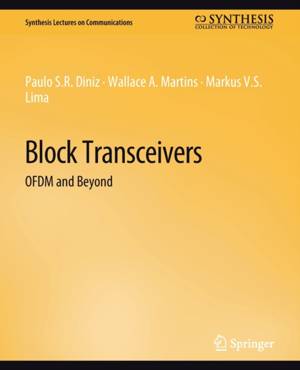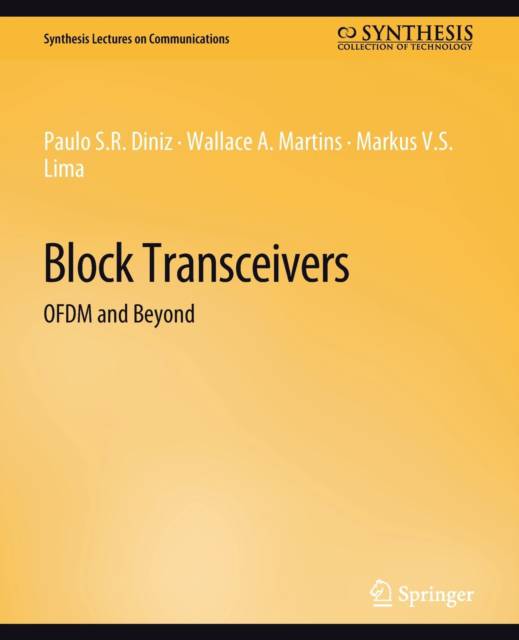
- Afhalen na 1 uur in een winkel met voorraad
- Gratis thuislevering in België vanaf € 30
- Ruim aanbod met 7 miljoen producten
- Afhalen na 1 uur in een winkel met voorraad
- Gratis thuislevering in België vanaf € 30
- Ruim aanbod met 7 miljoen producten
Zoeken
Omschrijving
The demand for data traffic over mobile communication networks has substantially increased during the last decade. As a result, these mobile broadband devices spend the available spectrum fiercely, requiring the search for new technologies. In transmissions where the channel presents a frequency-selective behavior, multicarrier modulation (MCM) schemes have proven to be more efficient, in terms of spectral usage, than conventional modulations and spread spectrum techniques. The orthogonal frequency-division multiplexing (OFDM) is the most popular MCM method, since it not only increases spectral efficiency but also yields simple transceivers. All OFDM-based systems, including the single-carrier with frequency-division equalization (SC-FD), transmit redundancy in order to cope with the problem of interference among symbols. This book presents OFDM-inspired systems that are able to, at most, halve the amount of redundancy used by OFDM systems while keeping the computational complexity comparable. Such systems, herein called memoryless linear time-invariant (LTI) transceivers with reduced redundancy, require low-complexity arithmetical operations and fast algorithms. In addition, whenever the block transmitter and receiver have memory and/or are linear time-varying (LTV), it is possible to reduce the redundancy in the transmission even further, as also discussed in this book. For the transceivers with memory it is possible to eliminate the redundancy at the cost of making the channel equalization more difficult. Moreover, when time-varying block transceivers are also employed, then the amount of redundancy can be as low as a single symbol per block, regardless of the size of the channel memory. With the techniques presented in the book it is possible to address what lies beyond the use of OFDM-related solutions in broadband transmissions. Table of Contents: The Big Picture / Transmultiplexers / OFDM / Memoryless LTI Transceivers with Reduced Redundancy / FIR LTV Transceivers with Reduced Redundancy
Specificaties
Betrokkenen
- Auteur(s):
- Uitgeverij:
Inhoud
- Aantal bladzijden:
- 184
- Taal:
- Engels
- Reeks:
Eigenschappen
- Productcode (EAN):
- 9783031005497
- Verschijningsdatum:
- 26/06/2012
- Uitvoering:
- Paperback
- Formaat:
- Trade paperback (VS)
- Afmetingen:
- 190 mm x 235 mm
- Gewicht:
- 367 g

Alleen bij Standaard Boekhandel
+ 84 punten op je klantenkaart van Standaard Boekhandel
Beoordelingen
We publiceren alleen reviews die voldoen aan de voorwaarden voor reviews. Bekijk onze voorwaarden voor reviews.











